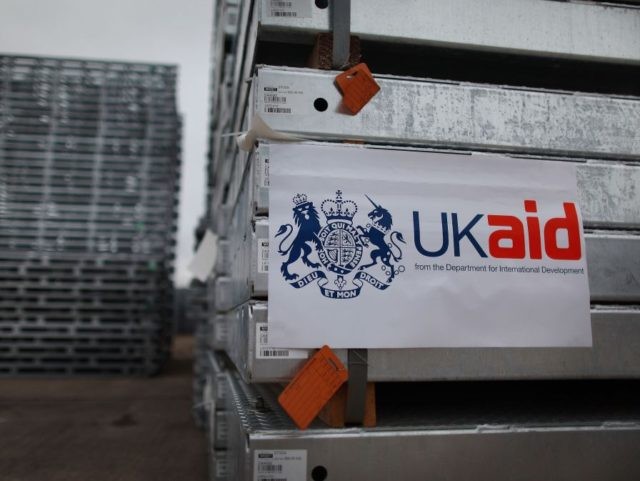UK lawmakers voted to confirm a foreign aid budget cut of approximately £4 billion on Tuesday, narrowly supporting what the government described as a temporary reduction while the country economically recovered from coronavirus spending.
While the majority of the UK’s aid spending is untouched by the change, as the nation’s annual pledge to using 0.7 per cent of GDP on foreign aid was cut this year to 0.5 per cent, nevertheless this resembles a roughly £4 billion cut in real terms spending. While the reduction took place in January, disquiet in Parliament over the move — some have accused the government of betraying Britain’s core values — saw the ruling Conservatives agree to a vote to confirm or reject the change.
While there was a sizable rebellion in Parliament from the government’s own MPs, nevertheless the Conservatives have a considerable majority after the 2019 landslide, and the vote passed 333-298.
Defending the move, the government pointed out the degree to which day-to-day spending by the state is actually funded by borrowing, rather than tax take, simply pushing the actual cost of programmes today onto future generations. The level of foreign aid spending would rise again, they said, when the level of government debt was falling, and when government spending was funded by today’s tax take, not tomorrow’s.
According to the latest figures from Britain’s Office of National Statistics, “general government gross debt” is presently £2,206 billion, equivalent to 104 per cent of GDP. The deficit — which is to say the amount of money the government borrows to fund spending — has surged from being equivalent to 2.3 per cent of GDP in 2019 to 12.3 per cent in 2020.
Prime Minister Boris Johnson said the “economic hurricane” the British economy faced because of the pandemic — a reference not just to the economic contraction caused by forced business closures and stay at home orders but also to the historically large spending programmes the government launched during that period — meant the government had to take “wrenching decisions”, AP reports.
Johnson said: “We all believe in the principle that aid can transform lives, and by voting for this motion, honourable members will provide certainty for our aid budget and an affordable path back to 0.7 per cent while also allowing for investment in other priorities including NHS, schools, and the police.”
Critics attacked the plan, arguing that the state of the British economy should not dictate how much money the nation sends abroad. Former Prime Minister Theresa May voted against the motion, having been a vocal critic of the cut to aid this year. Saying that Britain has “made a promise to the poorest people in the world”, May remarked it was wrong that the 0.7 per cent of GDP level was being cut, even temporarily.
Others saw foreign aid as an instrument of realpolitik and claimed cutting it put Britain at a disadvantage abroad. Former defence minister Tobias Ellwood was cigted by The Guardian as saying a new “cold war that is slowly emerging” and that aid spending was crucial to winning a soft power battle with China.

COMMENTS
Please let us know if you're having issues with commenting.